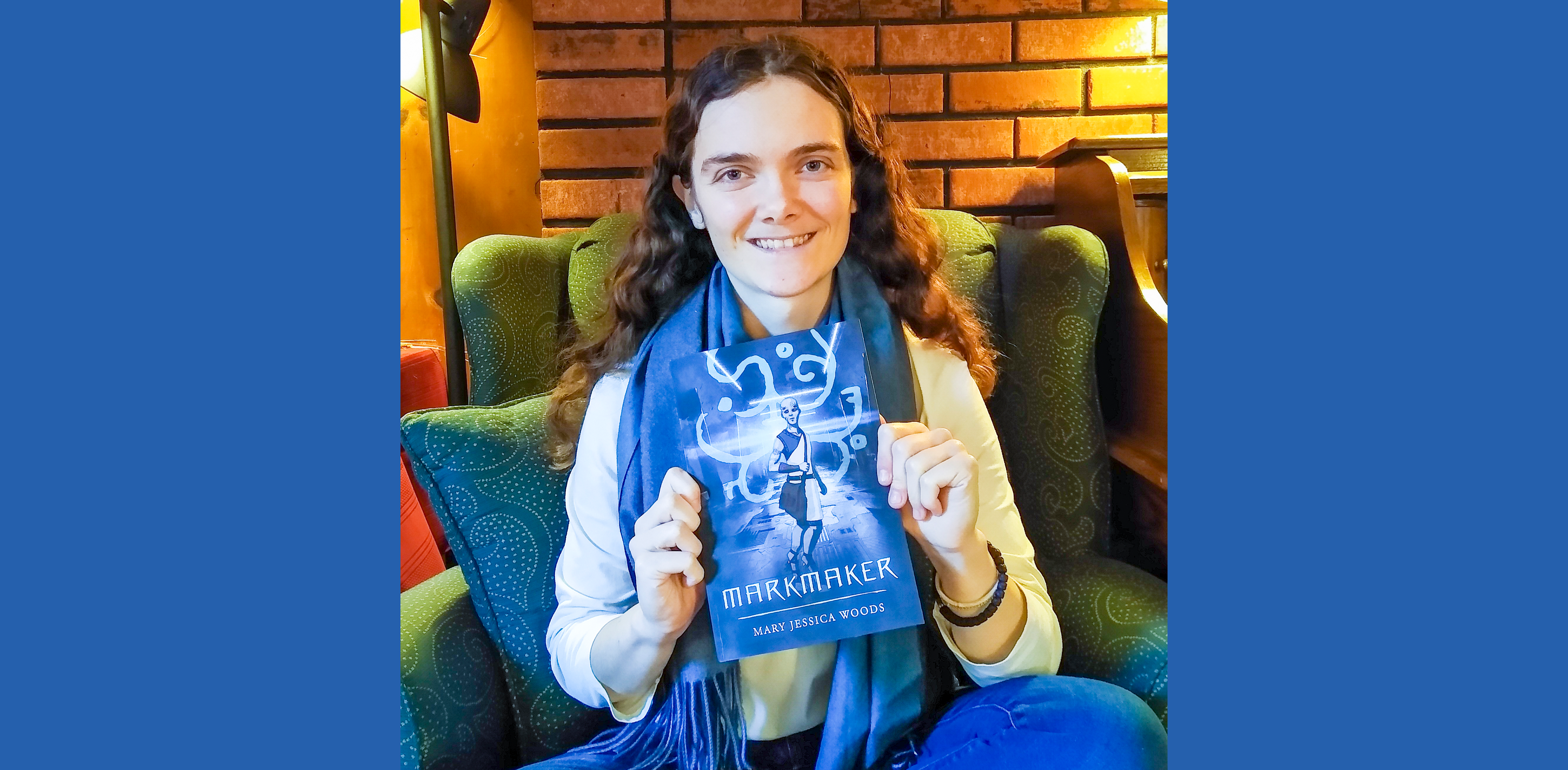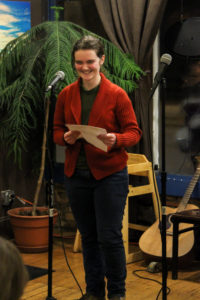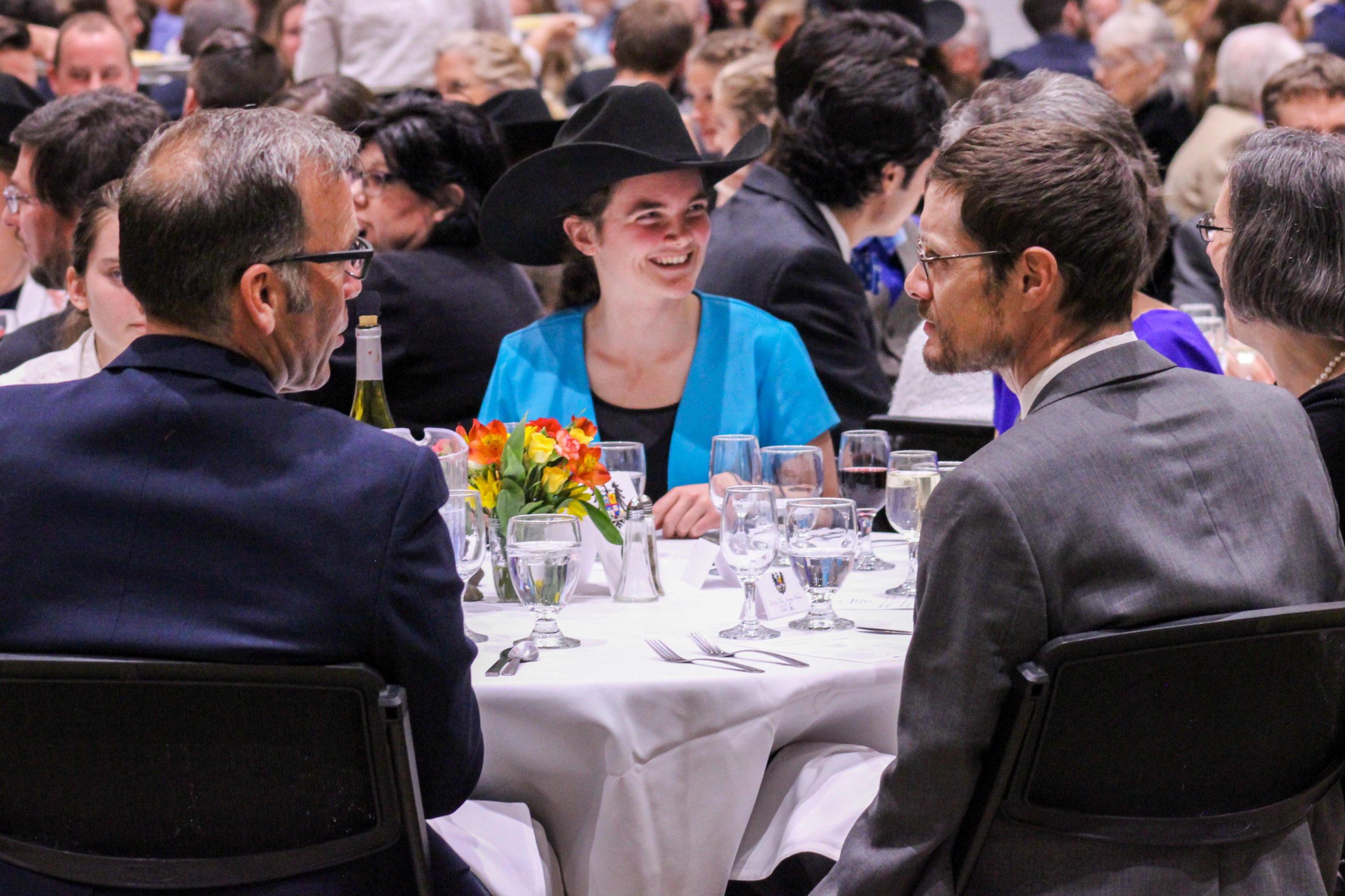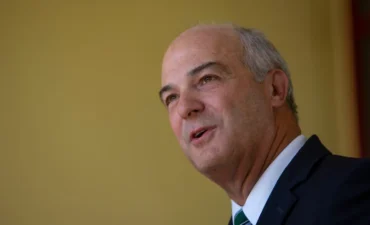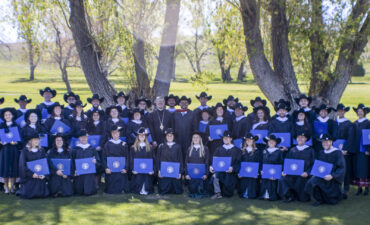Alumna Author Releases First Novel, “Markmaker,” from Chrism Press
Markmaker is an extraordinary first novel, beautifully plotted and elegantly written. From the first pages, it engages the reader in the struggle of its young narrator with the contradictions of a world that has lost—and not only literally—the gravity of its great past. …This book is a vivid accomplishment: it makes its reader feel the presence of greatness, first as a mere rumor, and then as a reality earned and enacted. — Glenn Arbery, President, Wyoming Catholic College, and author of Bearings and Distances and Boundaries of Eden
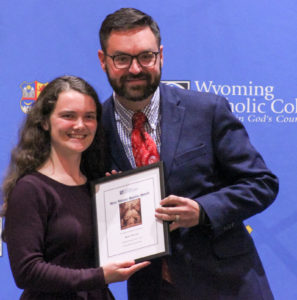
At long last, Mary Jessica Woods’s dream has become a reality. After years of striving, she can now lay proud claim to the title of “published author,” thanks to Markmaker, her debut novel, published on October 3rd by Chrism Press.
“This book is the realization of three years of drafting, editing, and learning the publishing process,” says Mary, who graduated from the college in 2019. “More than that, it’s the fulfillment of fifteen years of dreaming, honing my writer’s craft, and trusting in God’s plan for my creative work. Ten-year-old Mary wanted to be an author and to hold her own published book in her hands. And now, I finally can.”
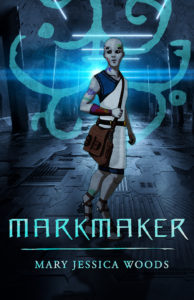 HE SWORE TO PAINT THE TRUTH. NOW HE IS LIVING A LIE.
HE SWORE TO PAINT THE TRUTH. NOW HE IS LIVING A LIE.
For the Noxxiin people, tattoos define identity: they commemorate birth, ancestry, accomplishments—even crimes. As a tattoo artist living on an ancient generation ship, Mariikel Serix has sworn to record the truth. So when he becomes an unwilling accomplice in the banishment of an innocent man, he is horrified that he has broken his oath—and his eyes are opened to the misery of the Underbelly, the realm of the outcasts.
Despite the risk to himself, the young markmaker begins secretly helping the ship’s exiles. But more trouble is brewing. The Serix guild, which regulates the ceremonial tattoos, engages in a power struggle with the Ascendance, a domineering political faction—and the conflict threatens to destroy the fragile peace among the Noxxiin clans. Amidst this discord, an enigmatic artist named Haza’ruux singles out Mariikel to be his apprentice, for hidden reasons of his own. As Mariikel ventures deeper into a maze of political strife and ancient clan secrets, he realizes that his pursuit of justice may not only cost his reputation—it may cost him his life.
Mary was raised and homeschooled in the Chicago suburbs, where she read as many adventure stories as she could get her hands on. At the age of ten, she realized she was doomed to be a writer and has been following the muse ever since. Eventually, that muse led her to Lander (and Wyoming Catholic), where she climbed mountains, rappelled off cliffs, and studied the Great Books. It’s been quite a journey. “The pursuit of publication is only one aspect of the writing journey,” Mary reflects. “When I reflect more deeply—when I try to discern what has driven me internally for all these years—I find a different answer. And while it is not at all unique, it is the truth: I write for love.”
Dappled Things’s Father Michael Rennier commented that “Mary …has built out an imaginative sci-fi world in which questions of identity, birth, and death cannot be ignored, as we so often do in ours.” And Ann Margaret Lewis, author of Murder in the Vatican: the Church Mysteries of Sherlock Holmes, says that “Mary Woods weaves a riveting story of an unlikely alien hero who flaunts the restraints of his unusual culture, and while doing so, holds up a mirror to fallen humanity. I couldn’t put it down. Any true lover of science fiction has to read this book.”
When asked how such an “exotic” book can be considered a Christian or Catholic story, Mary reminds us that “as George MacDonald once said about fairy tales, the fiction writer can invent new worlds and fantastic settings, but he cannot change the order of good and evil. …I credit much of [the book’s sacramentality] to my experience of being Byzantine Catholic—the Eastern expression of Christianity has a distinct poetry and physicality of worship that is very beautiful and evocative. Some of that ethos made its way into my imagination of Noxxiin society, as well. My primary hope is that people will enjoy the novel as a good story. If they experience truth or beauty while reading it, I believe I have done my job as a Catholic author.”
Markmaker opens as science fiction but slowly and surreptitiously moves into the realm of the fantastic. The result is a rare achievement, science fiction that retains a sense of ultimate wonder about the world. —Jeremy Holmes, Associate Professor of Theology, Wyoming Catholic College, and author of Cur Deus Verba: Why the Word Became Words
